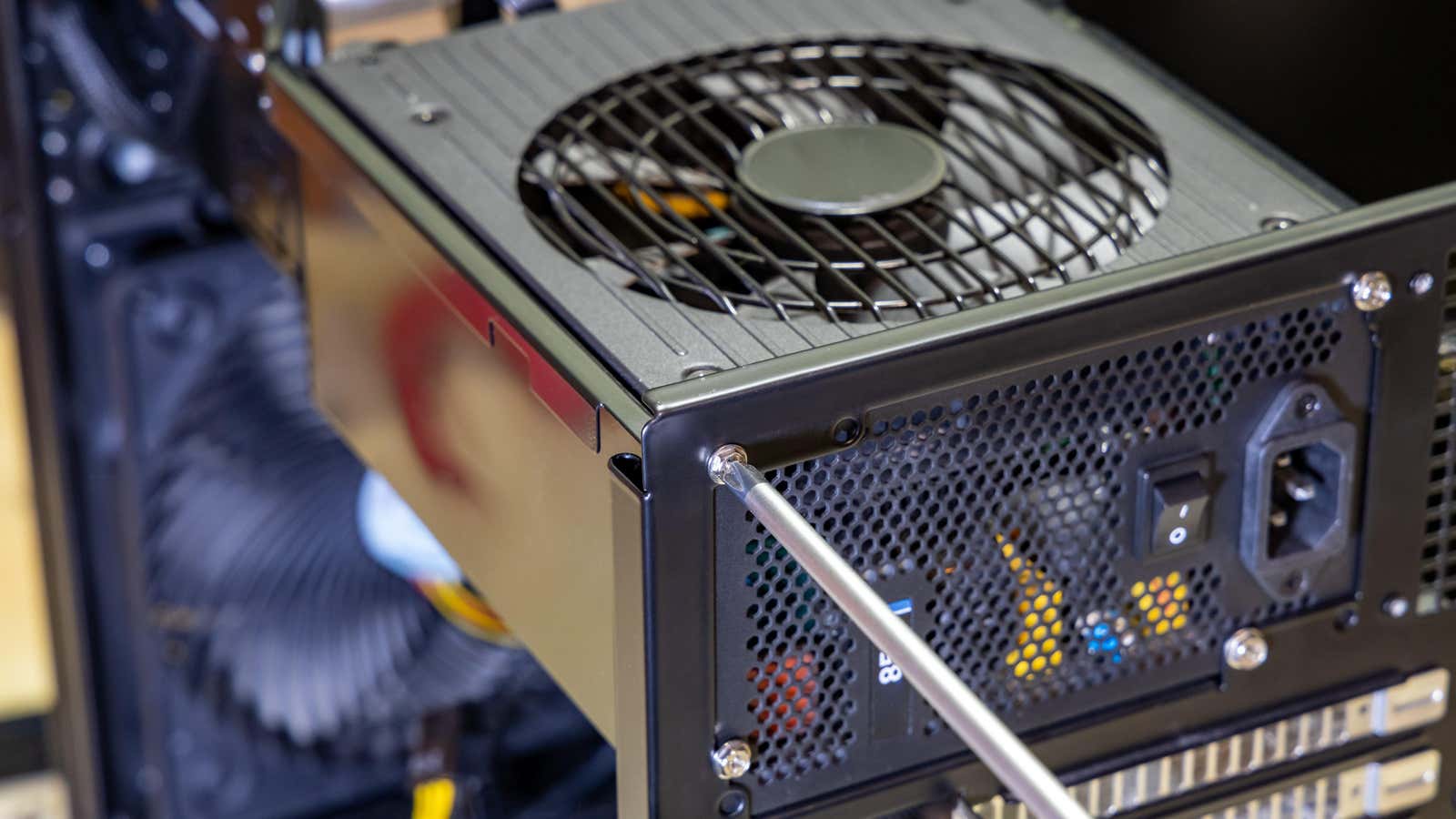How to Stop Games From Randomly Shutting Down Your PC

There are few things more annoying (or disturbing) than accidentally shutting down your computer in the middle of a game. If you’ve ruled out other solutions to the problem, such as updating your GPU drivers or motherboard BIOS, or fixing improperly installed hardware, your PC’s power supply is the most likely culprit. It’s either too weak to power your hardware, or it’s not properly connected to power-hungry components like your graphics card. Luckily, there are several ways to prevent these sudden PSU-related failures.
Upgrade your power supply
There are several potential reasons why your GPU could be overloading your PSU, but the most likely reason is that your PSU is not powerful enough. For example, while a 750-watt PSU is technically enough for most GPUs, including high-end cards like the RTX 3080 and 3090, some games can cause power spikes that exceed your PSU’s limits and crash your PC.
As evidenced by the responses in this Reddit thread , many users confirm that switching from a 750W PSU to a 1000W (or higher) PSU solved their random shutdown issues. For some users, simply replacing the PSU with a better quality 750-watt PSU was enough, though more power will likely fix the problem.
However, like any PC component upgrade, replacing the PSU with a 1000-watt model will cost you money. You also need to make sure the new power supply is compatible with your PC case and other components before buying and installing it. In some rare cases, you won’t even be able to upgrade if you bought a pre-built gaming PC with a custom chassis that requires a proprietary power supply, such as some Alienware “console” PCs with external power supplies.
It’s also possible that a larger power supply isn’t needed anyway. Of course, updating the PSU is almost guaranteed to fix the problem (barring some unforeseen issues with another component), but there are plenty of other solutions on the Reddit thread above that you can try before spending money on upgrades.
Make sure your PC components are properly connected to the power supply.
Another possible reason is that your GPU power cords are not properly connected to the power supply. Your GPU requires specific cords for each available slot it plugs into. Turn off the power and unplug your computer, then open the case and make sure everything is connected properly.
What is undervolting?
You can also try lowering your GPU’s power limit, also known as “undervoltage”. This is only possible on the latest Nvidia and AMD graphics cards, but it’s a safe and relatively easy process that reduces your GPU’s power consumption and heat dissipation and has only minimal, if any, performance impact. This is especially useful for pre-overclocked GPUs. Undervoltage is performed using your GPU manufacturer’s software such as MSI Afterburner or the AMD Adrenaline Radeon application. The exact process will vary depending on your specific hardware, but this guide from PC World is a great general overview.
Lower the graphics settings in the game.
Finally, if the solutions above don’t work for you (and you can’t afford a more powerful processor), try lowering the game quality for everything you play. The easiest way is to select a lower graphics preset, such as High to Medium or Low, and see if that solves the problem. Limit your framerate or set your FPS cap lower than what you currently have. Don’t play with “unlimited” framerate enabled. You can also adjust other individual game settings if you want to keep as much graphical fidelity as possible, although this may require a lot of trial and error.